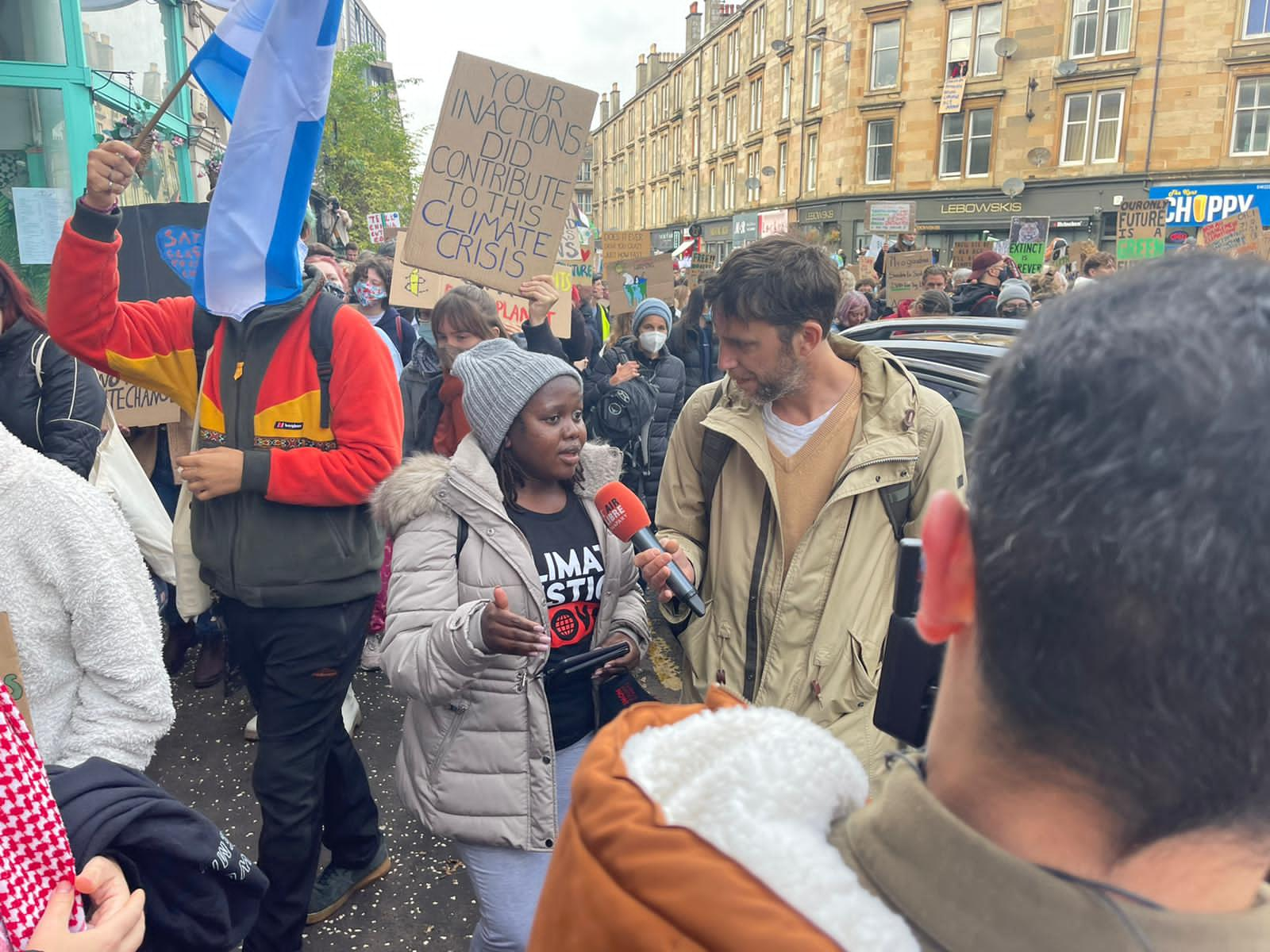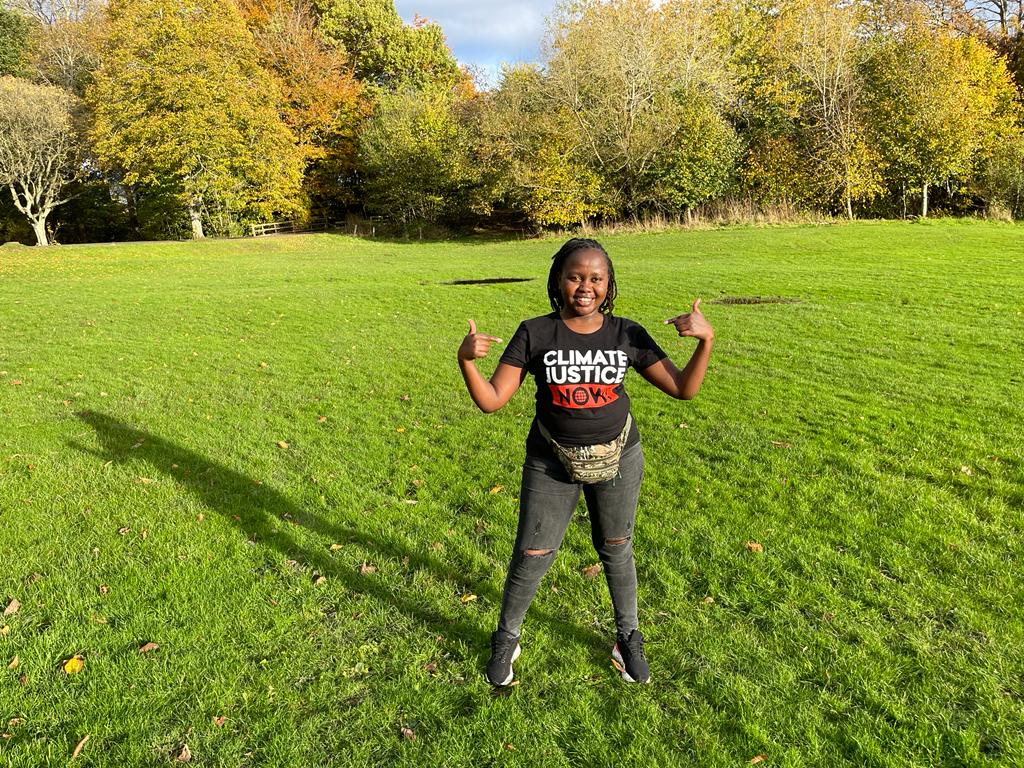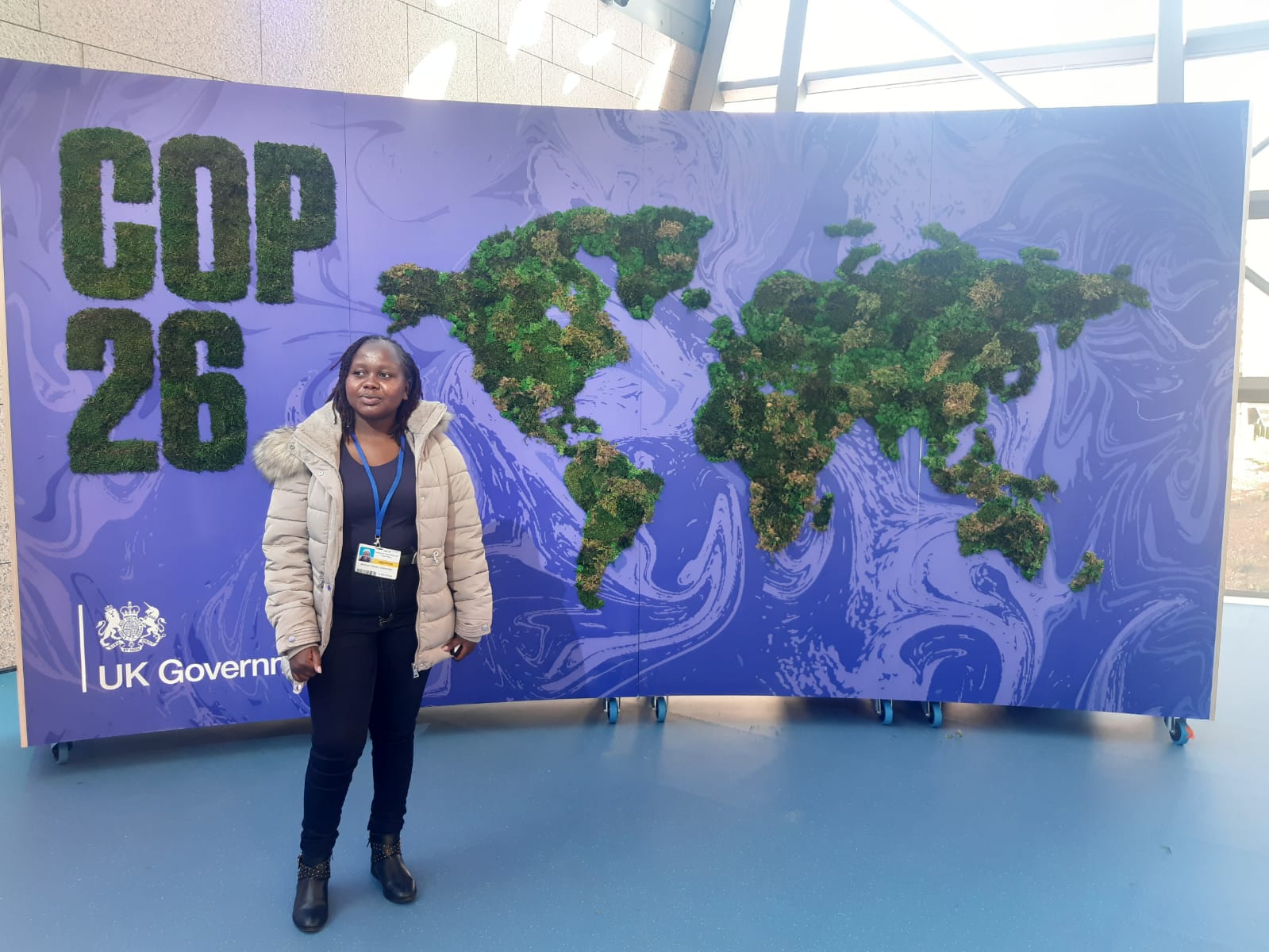COP26 outcomes: were any positive pledges to benefit women and girls made?
From Kenya to Glasgow, one activist shares her fight for women and girls at COP26

From Kenya to Glasgow, one activist shares her fight for women and girls at COP26
As COP26 - the biggest climate conference of the decade - draws to a close, many are asking what the COP26 outcomes actually were.
We know that more than 40 countries vowed to quit coal and that world leaders vowed to end deforestation by 2030, but, question: what outcomes were met for women and girls, what pledges and declarations were made, and what progress have women and girls on the frontline of the crisis seen?
We wrote about the lack of female representation at COP26 and further, how climate change affects women and girls more than men. Here Monicah, an activist who works with ActionAid who attended COP26, shares her thoughts.
"Despite lots of talk about compensating poorer countries, there was no funding agreed for what is known as 'loss and damage'"
The COP26 climate change conference was my first time in the UK. I am from a town in the Nanyuki region, which is very close to the base of Mount Kenya. The area is incredibly green and rich, and my mother used to grow crops during the seasonal rains. But in the last year, she was not able to harvest much because the rains have not been reliable. I have also seen other women in my community lose their livelihoods because of climate change.
Going to COP26 was an amazing experience for me. I really enjoyed meeting other climate activists from all over the world, particularly other young women who are making change in their communities.
People were friendly and were excited to show us the city, which was really humbling.
I spent two weeks in Glasgow, and I went with one agenda – to champion the voices of women and girls in climate change discussions. Like my mother, women and girls are on the frontline of climate change. They are the ones that will be the most affected and yet because of gender inequality, they have the least resources to manage its impacts. Too often, the voices of women and girls go unheard, even though they have the solutions to adapt to climate change.
Celebrity news, beauty, fashion advice, and fascinating features, delivered straight to your inbox!

I have personally seen women’s resilience in the face of climate change many times in Kenya. In Isiolo, a town in central Kenya, women have pivoted from farming in a traditional way to use new methods that will help them grow organic fruit that can survive in their dry environment.
One of my highlights of the two weeks was taking part in ActionAid’s Earthwalk, where thousands of people around the world marched for climate justice. It helped raise the voices of people from the Global South who couldn’t attend COP26 this year. I also visited some Scottish schools with the female astronaut, Nicole Stott, as she told her story of how she has witnessed the Earth’s fragility from space.
It was great to see that I was just one of the many young activists at this year’s conference.
Despite it being difficult for many people to travel to Glasgow due to the travel restrictions and lack of access to vaccines, I was happy to see and hear from many women. Spaces were created for us to be heard and that was a good step forward. Even outside of COP26, it was great to see the media cover the stories of women on the frontline of climate change that often go untold.
Although women were speaking up, we were still underrepresented at the conference – particularly women and girls from the global South. Many of the leadership positions at COP26 were still held by men. We need to see more balance so that women are not just heard but meaningfully participate in decision making when it comes to climate change.

While it was great to see ‘Gender Day’ at COP26, gender should not be a standalone issue. The voices of women and girls should not be limited to one day but instead, women and girls' issues should be at the heart of climate change issues.
Specifically, climate funding must deliver for women and girls on the frontlines of the crisis. It is about time the world recognises the change we could make if we were given the opportunity - and, of course, the money.
Despite lots of talk about compensating poorer countries, there was no funding agreed for what is known as “loss and damage”. Until there is, climate justice remains far off. Those who have done the most to cause climate change need to provide more financial support for the losses and damages already experienced by those on the frontline.
But I still have hope. The most inspiring part of COP26 was the opportunity to hear from women and girls around the world who are leading their communities in the fight against climate change, and time and time again coming up with innovative solutions.
Next year’s COP will be held in Africa and this will give us an opportunity for African women to get a seat at the table. I will be there – advocating for climate justice for all – and I hope you will all be too, in spirit, at least.

Ally Head is Marie Claire UK's Senior Health and Sustainability Editor, nine-time marathoner, and Boston Qualifying runner. Day-to-day, she heads up all strategy for her pillars, working across commissioning, features, and e-commerce, reporting on the latest health updates, writing the must-read wellness content, and rounding up the genuinely sustainable and squat-proof gym leggings worth *adding to basket*. She also spearheads the brand's annual Women in Sport covers, interviewing and shooting the likes of Mary Earps, Millie Bright, Daryll Neita, and Lavaia Nielsen. She's won a BSME for her sustainability work, regularly hosts panels and presents for events like the Sustainability Awards, and is a stickler for a strong stat, too, seeing over nine million total impressions on the January 2023 Wellness Issue she oversaw. Follow Ally on Instagram for more or get in touch.
